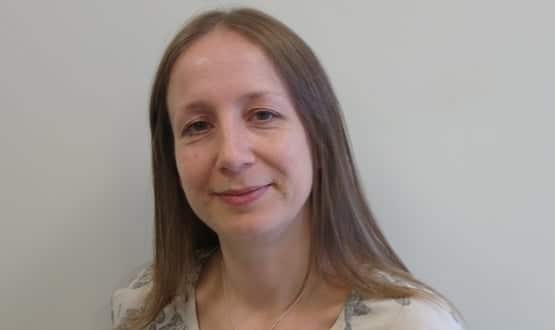It’s a few months since Ella Worsdale, head of information at Pennine Care NHS Foundation Trust, scooped the first Digital Health Award for future digital health leader. But, as she tells Owen Hughes, the achievement is one that still hasn’t quite sunk in – perhaps in part because she’s busy with the data work for which she was recognised.
Ella Worsdale can’t say being an NHS data bod was her destiny.
“I wouldn’t say that I dreamed of being the head of information at school,” says Worsdale. “I went for a job of data quality assistant and – fortunately for me – I wasn’t successful, but was offered a job supporting the implementation of Pennine Care’s new PAS instead.”
That was 13 years ago. Fast forward to today, and Worsdale has developed what her peers regard as one of the best information teams in the NHS – a feat for which she was recognised at the inaugural Digital Health Awards in July.
Months later, the news still hasn’t completely sunk in. “I am still completely surprised – but obviously overjoyed – to have won the Future Digital Leader Award,” she says.
“I couldn’t have done this without such a supportive team, which been there every step of the way and positively embraced the changes that have happened over the last few years.”
Change is often a gruelling process for people in Worsdale’s position, with new digital processes demanding new and often unfamiliar ways of working for health teams who have been doing things the same way for years.
The key, suggests Worsdale, is ensuring the benefits of a new technology is immediately demonstrable to those who will use it.
“We have a big clinical change team who all come from clinical backgrounds,” she explains. “Their main role is engaging with our clinical staff and understanding what they need and how we can implement systems, by mapping current and future processes, so that everyone understands what the change will bring and how it will work.
“Having this type of staff on board when implementing new technology should not be overlooked.”
One piece of work that sticks out as a particularly proud achievement for Worsdale is the implementation of a business intelligence platform.
After discovering data visualisation tool, Tableau, the head of information tasked herself with getting the platform into the hands of the trust’s 500+ operational managers.
Despite having previously struggled to eke out funding for such tools, Worsdale managed to wrangle for a pilot.
“It was so successful that we then rolled out Tableau across all our operational managers within the space of a few months,” she says.
“The implementation has made a massive impact on the way we provide an information service. My team are more motivated now that they have a great tool to work with; our information ‘customers’ are now providing us with great feedback and the organisation has recognised what a valuable service we are now able to give, now that we have the right tools in place.”
Worsdale reminisces about her introduction to complex world of health informatics, which really gathered speed in 2005 after she was offered a role supporting the implementation of Pennine Care’s then-new patient administration system.
Once completed, Worsdale spotted an opportunity to become an analyst in the information team.
“My real passion is data, and the power of data,” Worsdale confesses.
“I knew I would be able to play with data all day, which I thought would suit me well!”
Worsdale credits her love of data as being instrumental in enabling her to lead change at Pennine Care, and speaks passionately about the successes she has witnessed during her time in post.
“There are so many digital achievements in Pennine Care in the last 12 months. We appointed a new CIO just over 12 months ago [Chris Reynolds, the first to hold the role at the trust].
“We have recently appointed a CCIO – about 9 months ago – and now looking to appoint CNIO roles too to support him.
“We also formulised a new health informatics strategy with a clear programme of work for the next few years.
“This has really helped provide Pennine Care with clear line of sight for what is achievable, which has been brilliant.”
Another accomplishment that stands out to Worsdale is the introduction of a new child health system, which combines data from Bury, Oldham, Rochdale and Trafford.
“It has to have been one of the most complex IT projects that the trust has ever had to do,” admits Worsdale.
“It came with so many challenges along the way, most of which could not have been predicted. The project team spent over two years working on this and they have to be commended for their dedication and hard work.”
While Worsdale may be happiest when immersing herself in datasets, the head of information hasn’t lost sight of why she comes to work every day.
“Although I sit in a support service role and don’t see patients, I get great satisfaction from working with people who do, and providing a support service to them that helps them do their job and ultimately help them provide the best service they can.
“I rarely meet anyone that doesn’t enjoy working in the NHS,” she adds. “It’s hard and sometimes thankless, but I never forget why I am here and what I am here for.”


19 October 2018 @ 17:21
Excellent